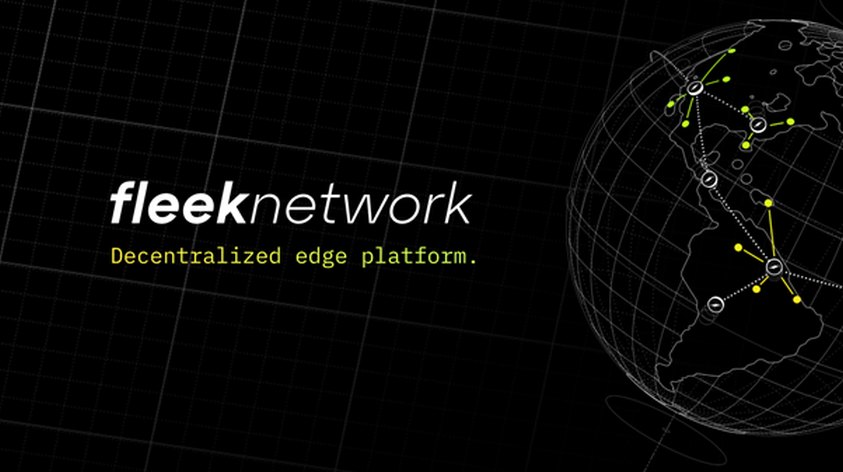Fleek Network releases new whitepaper for decentralized edge platform

Fleek Network, a network optimized to facilitate the deployment and running of geo-aware decentralized web and edge services, has released a new whitepaper unveiling its decentralized edge platform. This major milestone is accompanied by the launch of an open-source GitHub repository for the protocol. The whitepaper presents a new architecture that supports various decentralized edge services beyond just a decentralized CDN, including serverless functions, SSR, container orchestration, and more.
Fleek’s decision to develop this platform was driven by the shift in infrastructure trends, with the modern web moving from the cloud to the edge. This change is fueled by the increasing user base and the demand for low latency from global users. The upcoming testnet launch next month marks a significant step forward in the project’s progress.
Fleek’s decision to develop a decentralized edge platform was driven by the recognition of infrastructure trends that have seen the modern web migrate from the cloud to the edge. This transition reflects the internet’s rapidly expanding user base and the low latency demands of global users.
Instead of building this performance layer redundantly for every web3 service or protocol, Fleek Network intends to provide a shared performance layer that all web3 protocols can leverage. Thanks to its protocol-agnostic and modular architecture, Fleek Network’s edge platform can add value to virtually any web3 protocol, service, and app.
Fleek’s design results in work performed by nodes across the network being determined solely by geography and a performance-based reputation score. The network also features attributes like stateless execution, a VM-less core, content addressing and several other performance optimizations. As described in the whitepaper, these contribute to the overall performance and low latency of the network and the edge services built on top of it.
Harrison Hines, CEO and Co-founder of Fleek Network said: ”Similar to the modern web’s evolution, web3 is quickly moving towards a modular and composable future. Introducing a highly-performant decentralized edge network into the web3 stack as a shared performance layer could help close the gap between web2 and web3 performance, and provide a significant building block for developers on the road to mass web3 adoption.”
Parsa Ghadimi, lead researcher at Fleek Network, added: “Fleek Network’s architecture replicates the theory the edge brought to web2 to a blockchain architecture: executing services close to users, intelligently scaling up and down, only using resources when and where required. It’s a unique setup in web3 today, geared specifically towards web-service performance and cost requirements.”
The modern web is characterized by microservices accelerated by a performance layer that sits atop everything else. Fleek Network’s edge platform will provide these same capabilities in a decentralized way without needing to sacrifice on performance, cost, or web3 values.
At present, most web3 protocols rely on web2 performance layers to meet the latency expectations of developers and end users. Fleek Network’s decentralized edge platform will bring a much needed performance layer to the web3 stack, enabling developers to further decentralize their infra stacks and remove central points of failure while still providing the performance/low latency that their customers demand.
Following the release of the new whitepaper and Github repo, Fleek intends to release a testnet for its decentralized edge network that is currently scheduled to launch in August.
Founded a few years ago, Fleek Network is a decentralized edge platform optimized to facilitate the deployment and running of highly-performant web services. Fleek’s network of edge nodes allows developers to frictionlessly create a multitude of edge services that inherit cryptographically and economically secured infrastructure. Fleek Network’s goal is to provide a platform that all web3 protocols, middleware, services, and apps can benefit from to further decentralize their stack without sacrificing cost, performance, complexity, or user experience. Fleek raised a $25M Series A led by Polychain Capital in October 2022.

